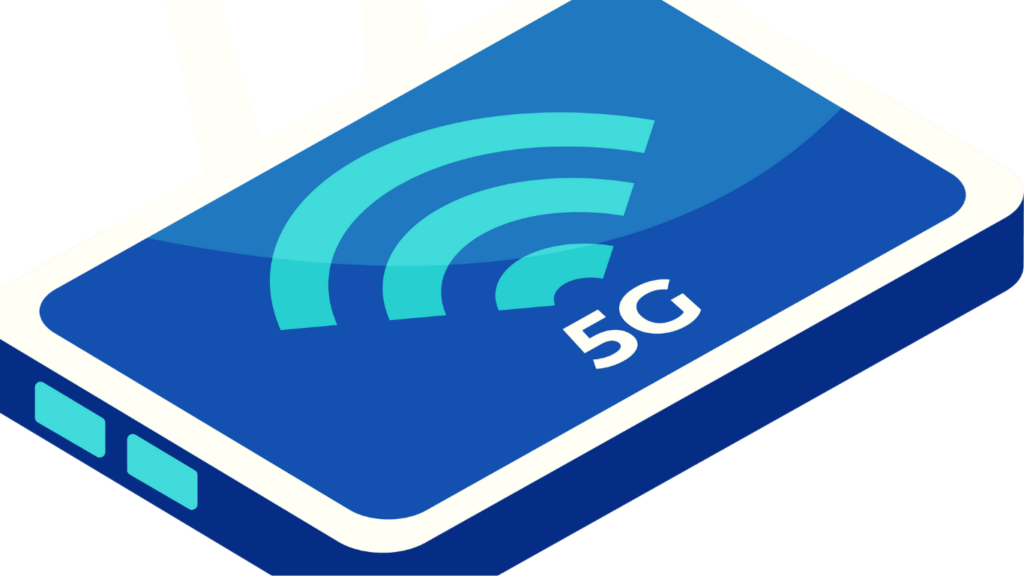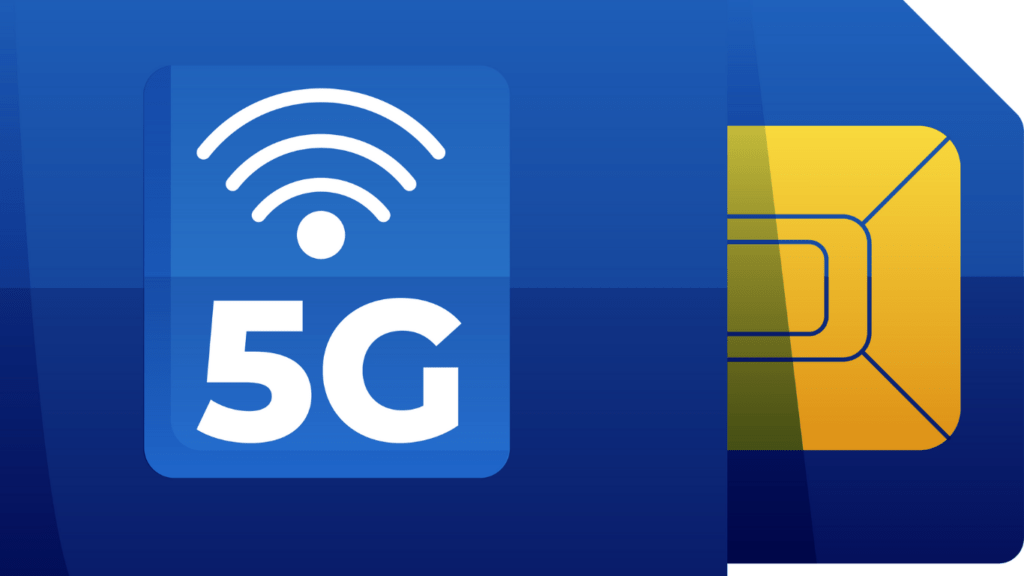Overview of 5G Technology
5G technology promises to revolutionize various sectors, including mobile gambling. Its capabilities go far beyond what current networks offer.
What Is 5G?
5G stands for fifth-generation mobile network technology, succeeding 4G LTE. It uses higher frequency bands and advanced antenna technology to deliver faster data speeds, lower latency, and greater capacity.
Unlike 4G, 5G supports more devices efficiently, making it ideal for densely populated areas and high-demand applications.
- High Speed: 5G offers data speeds up to 10 Gbps, which is up to 100 times faster than 4G. This allows for rapid downloads and seamless streaming.
- Low Latency: 5G’s latency can be under 1 millisecond, ensuring near-instantaneous data transfer. This is crucial for real-time applications like mobile gambling.
- Increased Capacity: 5G can support up to 1 million devices per square kilometer. This enables a more robust network in crowded locations.
- Enhanced Connectivity: 5G uses massive MIMO (multiple input multiple output) and beamforming technologies to provide stronger and more reliable connections.
- Energy Efficiency: 5G networks consume less power, extending the battery life of connected devices and reducing operational costs for mobile network operators.
The Current State of Mobile Gambling
Mobile gambling’s popularity has surged in recent years, fueled by advancements in technology and the convenience of smartphones.
Popularity and Growth
Mobile gambling has grown significantly. According to Statista, the global mobile gambling market size reached approximately $79.5 billion in 2020.
This growth’s driven by the increasing adoption of smartphones and the widespread availability of mobile internet. Users prefer gambling apps for their accessibility and diverse gaming options, such as:
- slots
- poker
- sports betting
The seamless transition from desktop to mobile platforms also contributes to this trend, as players can enjoy their favorite games anywhere, anytime.
Technology Used in Mobile Gambling
Current mobile gambling relies on several key technologies. HTML5 ensures compatibility across different devices, providing a consistent user experience.
Most gambling apps utilize robust encryption like SSL to protect users’ data and transactions. Real-time data analytics help operators personalize user experiences, increasing engagement.
Additionally, advancements in mobile payment solutions, including digital wallets and cryptocurrencies, streamline the deposit and withdrawal processes.
These technologies combined create a secure, dynamic, and user-friendly environment for mobile gamblers.
Impact of 5G on Mobile Gambling

5G technology transforms mobile gambling with unparalleled speed and efficiency improvements and an enhanced gaming experience.
Speed and Efficiency Improvements
High speeds up to 10 Gbps redefine online gambling. Download times decrease, enabling instant access to games.
Low latency, under 1 millisecond, ensures real-time responses, crucial for live betting and interactive games. Increased capacity, handling up to 1 million devices per square kilometer, supports larger user bases without lag or connection issues.
These advancements make network overloads and buffering a thing of the past, providing smoother and faster gameplay.
Enhanced Gaming Experience
5G elevates gaming experiences by supporting high-definition graphics and augmented reality (AR) features. Gamers enjoy seamless AR and virtual reality (VR) integrations, creating immersive environments.
Real-time data analytics becomes more efficient, providing users with instant insights and personalized recommendations. Enhanced security measures, coupled with faster data transmission, ensure safer transactions and user privacy.
These factors collectively lead to a richer and more interactive gambling environment, attracting and retaining users.
Potential Challenges and Solutions
5G technology offers numerous benefits to mobile gambling, but it also presents certain challenges. Addressing these potential issues helps ensure a seamless and secure gambling experience.
Network Coverage and Accessibility
Ensuring widespread 5G coverage and accessibility poses a significant challenge. While urban areas quickly adopt 5G, rural or remote regions often lag.
This disparity creates inconsistent user experiences. Deploying more 5G towers and infrastructure in underserved areas can bridge this gap. Partnering with local governments and telecommunications companies can expedite the rollout process.
Additionally, ensuring affordable 5G-enabled devices makes mobile gambling accessible to a wider audience.
Security Concerns in 5G and Mobile Gambling
The introduction of 5G opens new avenues for security risks in mobile gambling. Increased data speeds and connectivity can lead to more sophisticated cyberattacks.
Implementing advanced security measures like end-to-end encryption, multi-factor authentication, and AI-driven threat detection can mitigate these risks.
Collaborating with cybersecurity experts and continuously updating security protocols ensures a safe gambling environment. User education about security best practices also plays a crucial role in defending against potential threats.
Future Prospects of 5G in Mobile Gambling
The integration of 5G technology in the mobile gambling industry offers numerous promising prospects.
Advanced network capabilities could revolutionize user experiences, providing a seamless, interactive environment for all players.
Innovations and Opportunities
5G enables developers to create more sophisticated mobile gambling applications. The technology’s low latency allows real-time gambling experiences, virtually eliminating delays.
Players can enjoy immersive games with high-definition graphics, augmented reality (AR), and virtual reality (VR) features.
For instance, Gamesys and Entain have already begun producing AR games where players interact with digital objects in their physical environment, elevating mobile gaming to new heights.
Enhanced connectivity enables live dealer games to stream seamlessly on mobile devices. Players can interact with dealers and other participants, mimicking the social experience of a physical casino.
This feature could attract brick-and-mortar casino enthusiasts to mobile platforms, broadening the user base.
The ability to handle higher data volumes means mobile gambling platforms can support more simultaneous users without compromising performance.
It could enable large-scale tournaments or real-time multiplayer gambling experiences, ultimately increasing user engagement and retention.
Increasing data speeds foster the development of analytics tools that personalize user experiences.
Platforms can analyze user behavior to offer custom recommendations, bonuses, and game suggestions, enhancing user satisfaction and loyalty.
If 5G infrastructure continues to expand across urban and rural areas, disparities in network coverage will reduce.
Users in previously underserved regions could gain seamless access to mobile gambling platforms, promoting industry growth.
In essence, the future of 5G in mobile gambling promises an enriching, interactive, and widely accessible experience, driven by innovative technologies and vast opportunities.


 Elizabeth Garretinon is a talented and dedicated contributor at Spin Win Safely, where her passion for the online gambling industry shines through in her well-crafted and informative articles. While she is not the founder or chief editor, Elizabeth's contributions are vital to the platform's success, providing readers with valuable insights and practical advice.
Elizabeth specializes in writing detailed casino reviews, game strategies, and updates on the latest industry trends, ensuring that Spin Win Safely remains a trusted source of information for its audience. Her ability to present complex concepts in an accessible and engaging manner has made her a favorite among readers, who appreciate her clear and concise writing style.
Through her work, Elizabeth helps foster a culture of responsible gaming, encouraging players to make informed decisions and enjoy a safer gambling experience. Her dedication to excellence and commitment to the platform's mission make her an invaluable member of the Spin Win Safely team, contributing to the site's ongoing reputation as a leader in online gambling journalism.
Elizabeth Garretinon is a talented and dedicated contributor at Spin Win Safely, where her passion for the online gambling industry shines through in her well-crafted and informative articles. While she is not the founder or chief editor, Elizabeth's contributions are vital to the platform's success, providing readers with valuable insights and practical advice.
Elizabeth specializes in writing detailed casino reviews, game strategies, and updates on the latest industry trends, ensuring that Spin Win Safely remains a trusted source of information for its audience. Her ability to present complex concepts in an accessible and engaging manner has made her a favorite among readers, who appreciate her clear and concise writing style.
Through her work, Elizabeth helps foster a culture of responsible gaming, encouraging players to make informed decisions and enjoy a safer gambling experience. Her dedication to excellence and commitment to the platform's mission make her an invaluable member of the Spin Win Safely team, contributing to the site's ongoing reputation as a leader in online gambling journalism.
